He Endured Starvation & Humiliation, All For A Reality TV Show: TIFF Set For World Premiere Of ‘The Contestant’
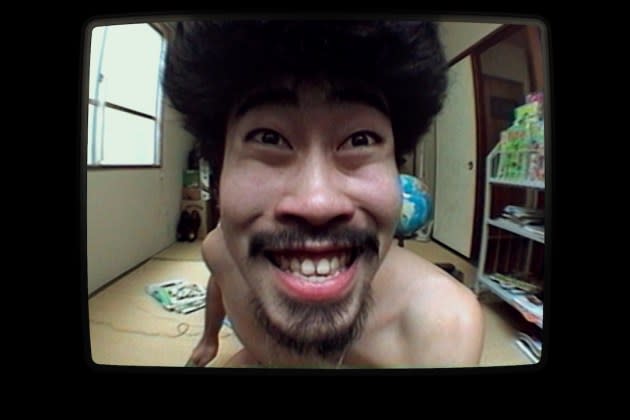
The Contestant, making its world premiere on Friday at the Toronto International Film Festival, begins with this text on screen: “At the end of the 20th century, Japanese audiences were confronted with an extraordinary television event.”
The event in question was the 1998 premiere of a reality TV series with an “entertaining” but ultimately cruel premise: Place a game show contestant in an extreme situation and watch what happens. An aspiring comedian nicknamed Nasubi (the Japanese word for eggplant) won an audition to be the centerpiece of the show.
More from Deadline
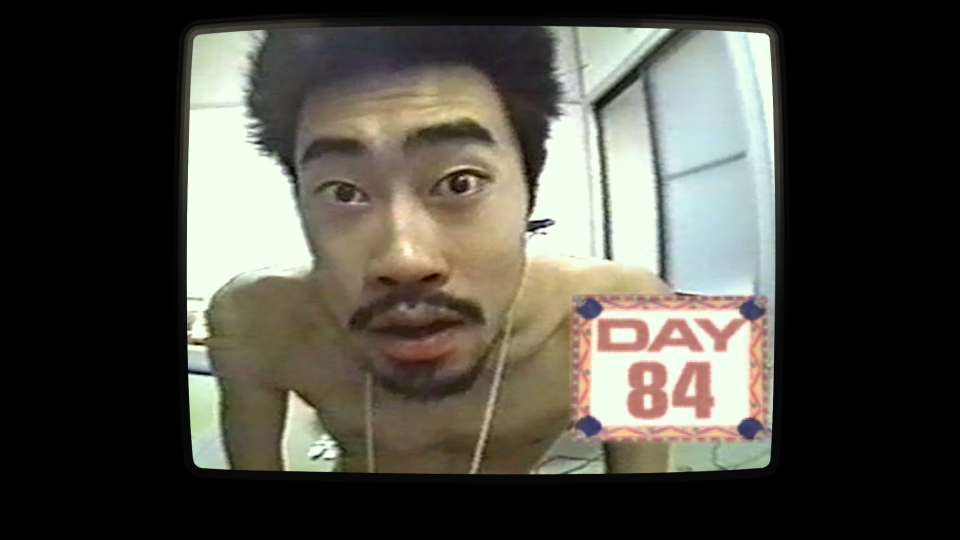
“The setup was they put him in this apartment with nothing in the room apart from a pile of magazines… and a pile of postcards,” director Clair Titley explains. “They make him take off all his clothes and he has to win everything that he needs to survive through the competitions in the backs of magazines.”
That’s where the postcards came in – Nasubi needed to fill them out and mail them in hopes of winning prizes.
“He was told that he would be released once he’d won 1 million Yen’s worth of prizes [about $10,000 at the time],” Titley tells Deadline. “And then they shut the door and that’s it. And it’s a total of 15 months that he’s in there.”
Nasubi managed to “win” a lot of things that proved useless under the circumstances – like a set of tires.
“He applies to win clothes numerous times,” Titley says. “He wins some women’s panties that don’t fit him.”
Denpa Shōnen – My Life in Prizes, as the show was called, was produced by a man named Toshio Tsuchiya. In the documentary he admits, “We [were] trying to show the most basic primitive form of human being.”
The producer had only informed Nasubi the show might air at a future date.
“They told me it was a pilot,” Nasubi recalls. “I wasn’t sure that people were actually going to see me.”
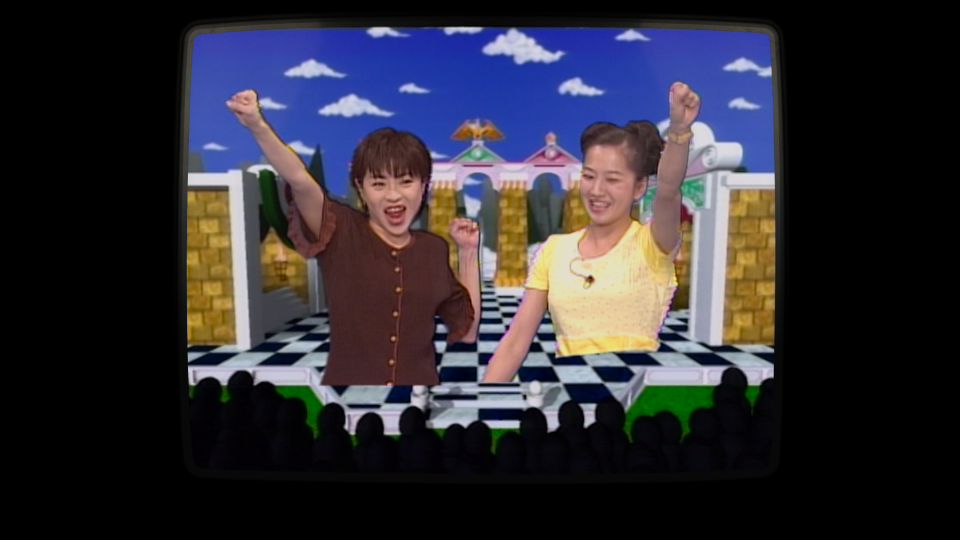
Unbeknownst to Nasubi, episodes were appearing weekly on Nippon TV while he was in isolation and without a television himself. The voyeuristic series became a sensation, attracting tens of millions of viewers per episode. Studio hosts of the show gave running commentary on Nasubi while an enthusiastic audience reacted to scenes showing his predicament. Whenever he won a prize and celebrated with a happy dance, they cheered.
But TV viewers weren’t seeing the reality of what Nasubi was experiencing day to day.
“My Life in Prizes, that was very much cruel,” Nasubi tells Deadline. “The only thing I could do is to write and mail in to win the sweepstakes. There is no happiness of my life. There is no freedom… But that was not edited into the program, that was not shown. Maybe three or five minutes a week out of my life [were shown]. And that was edited to highlight my happiness when I won [a prize]. Of course, viewers would say, ‘Oh, see, he’s doing something fun and something that he’s enjoying…’ But the majority of my life was suffering.”
“He gets close to starvation,” Titley notes. “He has to survive on rice, dog food, whatever comes through the door, basically.”
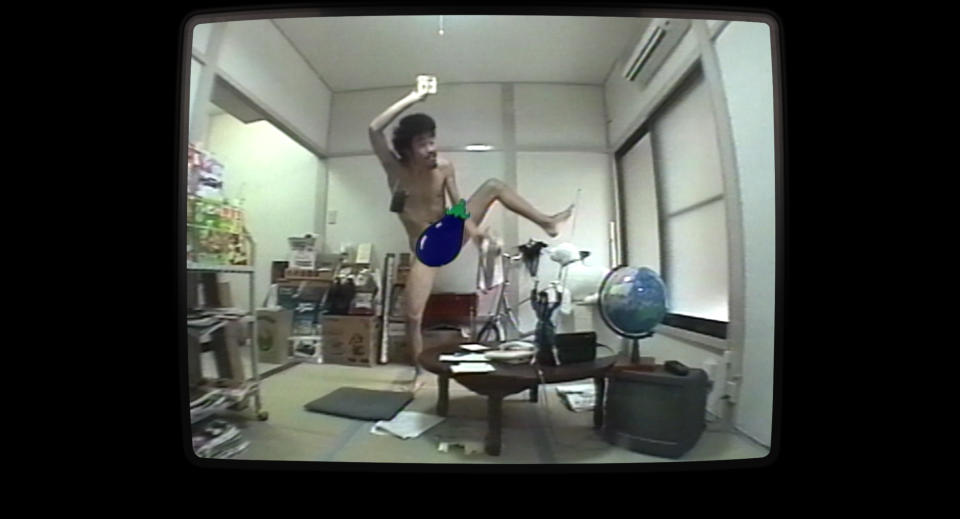
Eventually, his entire life was livestreamed – again, without his knowledge. (To cover his nudity, producers superimposed an eggplant image over his private parts; this is how the universal emoji for male genitals became an eggplant). There are obvious parallels to The Truman Show, the 1998 Jim Carrey movie about a man who belatedly comes to realize his entire life is a reality TV show.
“The Truman Show came out while Nasubi was in the middle of doing the show,” Titley says. “When Nasubi came out of Denpa Shōnen, he actually ended up going to the cinema to see The Truman Show… He sat by himself in the cinema watching this film with Jim Carrey and literally was kind of looking around to see whether or not he was being filmed.”
Nasubi’s experience evokes not only thoughts of The Truman Show, but other pop cultural mileposts, like The Hunger Games, Squid Game, and Castaway, the Tom Hanks movie about a man stranded on a deserted island. In that film, Hanks’ character made a companion out of a volleyball he dubbed Wilson; Nasubi “befriended” stuffed animals to stave off the crushing lack of social contact.
Nasubi’s experience also calls to mind the notorious Stanford Experiment of 1971, considered one of the most unethical psychological experiments ever conducted. To explore power dynamics, a group of volunteers was divided into prisoners and prison guards, but the exercise became grotesquely abusive. Not so different from what Nasubi’s went through.
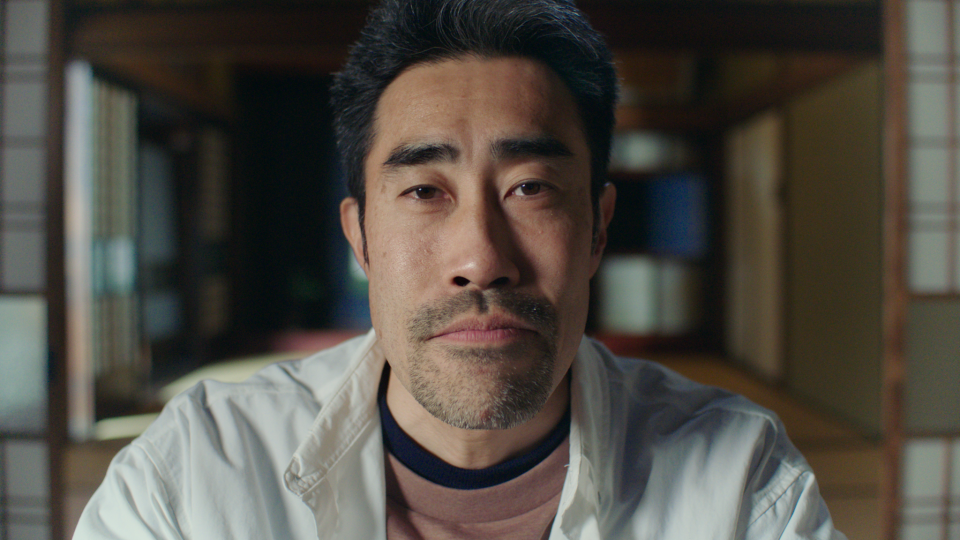
“In the beginning, the people working on the television show really kind of created all the loneliness for me,” Nasubi says. “I really felt cornered. And then I felt that’s really scary, how humans can do that to other people.”
As a boy in Fukushima, kids had mocked him for his elongated face (the eggplant nickname, which producers came up with, was meant to describe his facial features). The show recapitulated the anguish of his childhood.
“The show was a form of entertainment, but people were really laughing at me. So that was kind of scary to me, something that’s scary about humankind,” Nasubi notes. “If people are presented that this is something really funny, then people think it’s funny. I felt that brainwashing factor of it. So, there is the potential fear of other people — that’s what I was feeling afterward. That was really traumatic for me, and I was not able to communicate with other people for a long while after the end of the program.”

The Contestant is an acquisition title at TIFF, with MRC handling sales. It premieres Friday afternoon, with encore screenings set for Saturday and Wednesday (the press and industry screening happens Saturday morning). The Contestant is written and directed by Clair Titley, and produced by Ian Bonhôte, Megumi Inman, and Andee Ryder.
Nasubi did not go on to achieve huge success as a comedian, one of his goals for agreeing to do the show in the first place. But he achieved something greater, one might say – devoting himself to helping others after the devastating 2011 earthquake and Tsunami in his hometown of Fukushima, and the terrible 2015 earthquake in Nepal that killed about 9,000 people.
“He’s really humble,” Titley says, “and what he won’t tell you is that he goes to back to Nepal every year and gives these people money. I mean, he’s a really humble guy and he’s a good soul.”
Some have described Nasubi as gullible for allowing himself to be taken advantage of by the producers of Denpa Shōnen. At age 48 now, he seems to have reached a level of self-acceptance.
Nasubi says, “I’m a person with the belief that I’d rather be tricked rather than becoming a person to trick people.”
Best of Deadline
2023 Premiere Dates For New & Returning Series On Broadcast, Cable & Streaming
Venice Film Festival 2023 Photos: Jessica Chastain, Peter Sarsgaard 'Memory' Premiere
SAG-AFTRA Interim Agreements: Full List Of Movies And TV Series
Sign up for Deadline's Newsletter. For the latest news, follow us on Facebook, Twitter, and Instagram.


